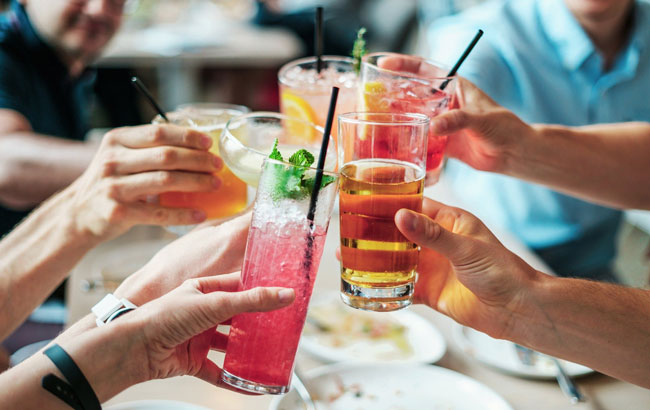Japan embraces low-ABV over health concerns
Health-conscious Japanese consumers are turning to low-alcohol beverages in a bid to make more mindful drinking choices, a new survey has found.

The rising adoption of low-alcohol beverages in Japan reflects a notable change from conventional drinking practices, data and analytics company GlobalData said.
The rising demand for low-alcohol variants has been primarily observed among young Millennial and Gen Z drinkers. This is supported by GlobalData’s consumer survey from Q3 2024, which revealed that 56% of 25-34-year-olds indicate they consume low-alcohol or alcohol-free drinks, followed by 49% of 18-24-year-olds.
Shravani Mali, consumer analyst at GlobalData, commented: “Rising health consciousness has pushed Japanese consumers to increasingly opt for beverages with low-/zero-alcohol claims. A survey corroborates this trend, where one-in-four respondents in Japan prefer low-alcohol or alcohol-free drinks since these drinks are healthier/have fewer long-term effects.”
In response to the enhanced focus on the health and wellness trend, Japan’s Ministry of Health, Labor, and Welfare has recommended alcohol consumption guidelines that prioritise health considerations and promotes responsible drinking.
Furthermore, drinks brands are beginning to align themselves with this trend by offering more products in the low-alcohol space.
Mali continued: “As Japan continues to embrace these changes, the low-alcoholic beverages will play a significant role in the country’s drinking culture moving forward. With manufacturers increasing focus on developing new products to meet these evolving preferences, the low-alcohol beverages market is expected to experience substantial expansion.”
Mariko Kadosaka, key account director at GlobalData Japan, added: “Growing interest in responsible drinking has led consumers to gravitate towards low-alcohol options. Consequently, key players operating in the alcoholic beverages market are adding low-alcohol by volume products to their portfolios to attract health-conscious individuals. For instance, in September 2024, Kirin Brewery Company launched Kirin Hanayoi, a new brand of low-alcohol RTD (ready-to-drink) beverages.”
Kirin Hanayoi is a mixture of soju with carbonated water and juice, which sits at 3% ABV.
It is the first time in nine years that Kirin Beer has released a product with less than 3% alcohol content, and the brand said it aims to sell ‘about 20 million units’ by the end of the year.
Kirin Brewery said: “It is a product that reflects customers’ requests to ‘enjoy alcohol without burden’ and ‘the right amount of alcohol enriches life’.”
Kadosaka added: “To align with the evolving drinking patterns in Japan, Asahi Breweries is reported to refrain from releasing products that have alcohol levels exceeding 8%. Additionally, by 2025, the company plans to boost the sales of its product range containing 3.5% alcohol or less. The rise of these low/zero-alcohol beverages reflect broader changes in Japan’s drinking culture, where moderation and mindfulness are becoming key factors in consumption habits.”
In August, data from analytics firm Commetric found that most low-and-no products mentioned on Reddit are from established alcohol brands.
Related news
820 Spirits creates gin drops for low-alcohol drinks
